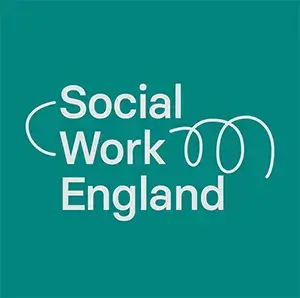Supporting Children and Young People with Disabilities: The Overlooked Power of the Chronically Sick and Disabled Persons Act 1970
31st Mar 2025
Social work assessments play a critical role in understanding the needs of children and families and should be collaborative, aiming to gather and evaluate information about a child or young person's unique circumstances, strengths and challenges. However, many families of disabled children report feeling judged and under scrutiny from Local Authorities, with a focus on perceived parental failings (Clements and Aiello, 2021). It is therefore vital to recognise that assessing the needs of a disabled child, in the absence of clear neglect or abuse, necessitates a different perspective than a safeguarding-centric lens.
The starting point for any assessment must be the recognition that parents are the foremost experts on their child. Their daily experiences and bond provide an invaluable sense of knowing about their child's condition and specific needs (Carter et al., 2017). Assessments should therefore prioritise what support is needed for a child and their family, so they are able to experience ‘a quality of life comparable to that of non-disabled individuals’ (Read et al., 2006, p 17).
The legal framework provides a pathway for this. Section 17 of the Children Act 1989 automatically defines disabled children as ‘in need’, requiring Local Authorities to conduct thorough assessments to determine any necessary services. Crucially, these obligations extend to Section 2 of the Chronically Sick and Disabled Persons Act 1970, which establishes a distinct set of duties on Local Authorities concerning the provision of social care and other support for disabled individuals. These duties are more specific than the broader requirements of the Children Act 1989 and cannot be simply overlooked or substituted. However sadly, the CSDPA 1970's power to ensure appropriate support is often underestimated, and its specific requirements aren't always fully integrated into assessments. This can have serious consequences, preventing disabled children and young people from accessing the right level and type of social care support that they need.
For example, when assessed and deemed necessary, the CSDPA 1970 mandates that Local Authorities arrange practical assistance at home, home adaptations, recreational and educational facilities, and help with travel. These are tangible forms of support that are often critical for enabling disabled children and young people to actively participate in their communities and reach their full potential. When the specific obligations of the CSDPA 1970 are not diligently considered, the support offered solely under the umbrella of the Children Act 1989 may fall short. This can lead to a decline in the child’s or young persons development and welfare, potentially worsening existing challenges and creating new ones for the entire family.
As a result, it is vital that a child’s social care needs are clearly and comprehensively understood. They should be documented within Section D (Social Care Needs) and Section H (Social Care Provision) of a child or young persons Education, Health and Care Plan, and can build a compelling case for a particular service provision. Understanding and actively advocating under the CSDPA 1970 also significantly strengthens a ‘Child in Need’ plan, or even provides the crucial grounds for litigation, should these steps become necessary.
If you require an Independent Social Work report, please get in touch. We offer comprehensive assessments that are designed to truly understand the heart of the matter. Our aim is to reflect people’s unique stories, in the context of their families, and move beyond surface-level judgments. This allows us to identify the core issues so that the legal frameworks can be appropriately applied and decisive recommendations can be made. Our reports are court-compliant and we are able to provide expert witness services when required.




